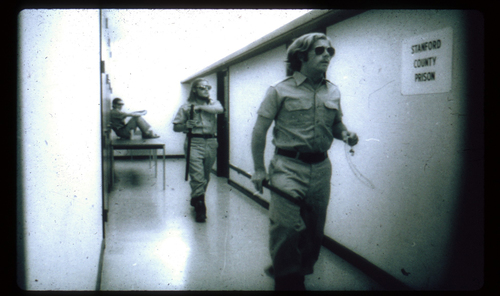
Some of the world's leading social psychologists, including UQ’s Professor Alex Haslam, have called for “an open and respectful debate” over the interpretation of one of the discipline’s most infamous experiments.
The Stanford Prison Experiment (SPE) has been taught in psychology classrooms around the world over the last 40 years, as evidence of the power of social roles to bring out the worst in people.
The study took a group of college students and cast them in the roles of prisoners and guards in a simulated prison created in the basement of Stanford University.
The two-week experiment was cut short after six days when guards became cruel and controlling and prisoners were distressed.
However, earlier this year, new information about what happened in the experiment sparked intense debate about the original conclusions of the study.
Professor Haslam said the new evidence shows that some guards actually resisted their roles and then were cajoled by the experimenters into enacting them.
“The researchers in the Stanford Prison Experiment claim that it showed people’s willingness to oppress others by simply putting on a prison guard uniform,” Professor Haslam said.
“However, it would appear that the experimenters actually engaged in ‘identity leadership’ in which they encouraged the guards to engage in toxic behaviour by trying to persuade them that this was necessary for the achievement of worthy group goals.”
Professor Haslam’s research partner in the BBC Prison Study, Professor Stephen Reicher from the University of St Andrews, said the new information about what happened in the SPE provoked impassioned debate due to the significance of our understanding of brutal human behaviour.
“At times, this debate has overstepped the boundary from a robust battle of ideas to personal abuse. Not only is this wrong in itself, it also impedes advances in our understanding of why and when human behaviour turns toxic,” Professor Reicher said.
Now, in the interest of focussing the debate on the science and the understanding of human behaviour, Professors Haslam and Reicher have issued a joint statement with Professors Philip Zimbardo and Craig Haney, who conducted the SPE.
The statement welcomes the new information about the SPE and calls for an open and respectful debate about its implications.
Read the full statement.
Media: Professor Alex Haslam, a.haslam@uq.edu.au, @alexanderhaslam; Dani Nash, UQ Communications, dani.nash@uq.edu.au, +61 7 3346 3035, @UQhealth.



